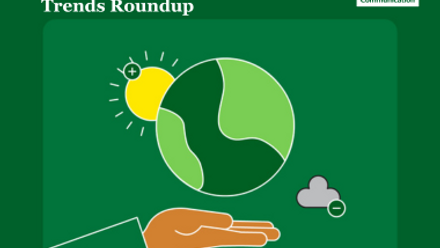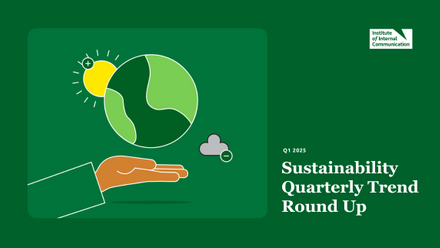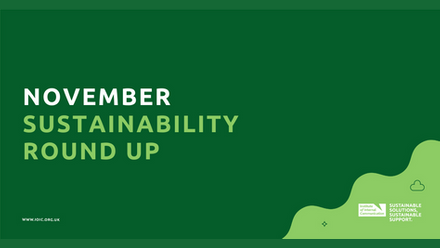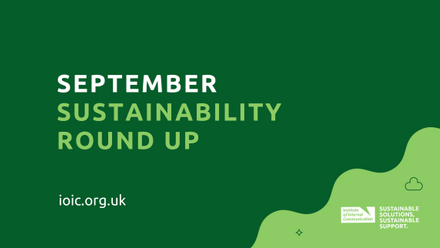At the IoIC, we believe everyone has a moral imperative to reduce consumption and carbon emissions, to protect our planet for future generations.
We also believe there’s a huge opportunity for internal communicators to kick-start and facilitate carbon conversations at work, engaging as many people as possible in the journey towards net-zero business.
With the above in mind, here are some of the sustainability news developments that caught our eye this month.
Community sustainability
A ground-breaking climate trial in Montana has found in favour of the young activist plaintiffs who accused state officials of violating their constitutional right to a healthy environment by promoting fossil fuels.
Although US-based, we suspect the judge’s verdict in this landmark case is likely to energise potential plaintiffs around the world, paving the way for more widespread legal action in defence of people’s human rights regarding their wellbeing within their communities.
Similar youth-led constitutional lawsuits are currently pending in four other US states.
The key takeaway here is that no organisation is safe from legal action if it’s a primary emitter or polluter.
Organisational sustainability
The World Business Council for Sustainable Development (WBCSD) is a global, CEO-led community of over 200 of the world’s leading sustainable businesses. It’s committed to accelerating the system change needed for a net-zero, nature positive, and more equitable future.
Given the importance of getting every stakeholder within our organisations thinking about sustainability, we found this article about how its leader, Peter Bakker, wins over sceptical C-suites when it comes to environmental, social and corporate governance (ESG) issues, an interesting read.
He believes that board members should adopt a new mindset that includes what he calls the “three Rs”: reinvention, regeneration and resilience. After this, “all functions in the organisation need to be educated on what this transformation means for them. This can’t simply be left to the sustainability team.”
As internal communicators, we’re perfectly placed to take the lead in enabling this change, of course.
Economic sustainability
Should we – as organisations and nations – be taking greater responsibility for the carbon footprints of the goods we import?
Experts are increasingly arguing in favour of the introduction of a carbon border adjustment mechanism (CBAM) – essentially a levy applied to a product, based on its carbon emissions, when it enters its country of consumption.
The proponents of such a scheme believe it would prevent polluting imports from being sold at a price that belies their true environmental cost and encourage foreign manufacturers to reduce the emissions associated with their products, while also potentially having a positive effect on the domestic manufacturing sector.
The EU is set to introduce a CBAM for the steel, electricity and hydrogen sectors, and sustainability champions believe it’s likely that UK will need to do the same, if it is to avoid the influx of high-carbon imports displaced by its neighbour’s mechanism.
Environmental sustainability
It turns out there’s another challenge emanating from the proliferation of generative AI in our working lives – its environmental toll.
It’s probably not something that many of us think about, but AI uses vast amounts of energy and water to function. As its use becomes more widespread, this resource-intensive issue is set to get worse, unless measures are taken.
It’s hard to put exact numbers to the current environmental impact of AI – principally because the companies behind these tools are reticent about making data relating to that available.
So, what can we do? While tech experts are researching ways in which generative AI’s seemingly magical powers of deduction can be maintained without the accompanying high energy use, perhaps a start might be simply increasing awareness among our colleagues of its harmful environmental impacts.
Personal sustainability
Rebecca Solnit is the author of the climate anthology Not Too Late: Changing the Climate Story from Despair to Possibility.
In this piece, she sets out the case for why none of us should have the luxury of being climate defeatists.
Searching hard for evidence that we’re doomed rather than believing we can turn things to our advantage in the fight against climate change, she argues, is tantamount to “surrendering in advance and inspiring others to do the same.”
So internal communicators will need to take on board that within our organisations we may increasingly come across climate ‘doomers’ – who, through their defeatism, might be evangelical in discouraging those who otherwise might act – as well as the outright deniers, who are already committed to inaction.




